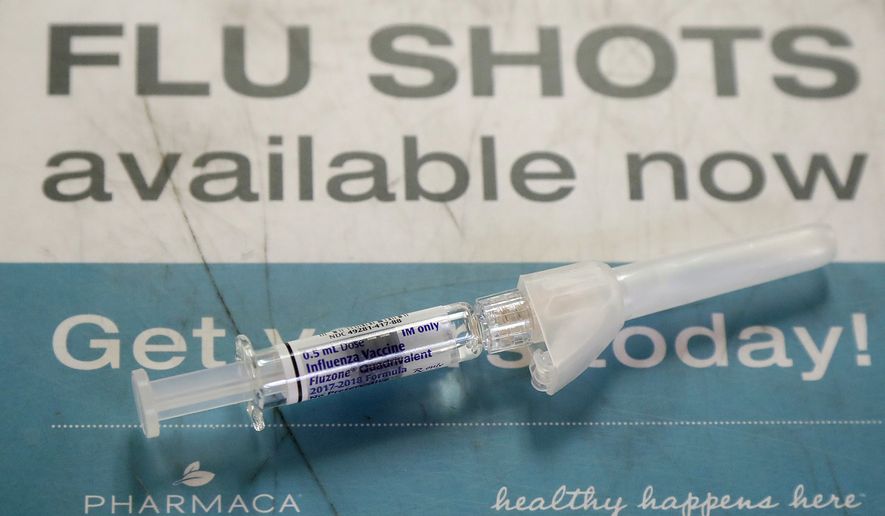A planned conference to discuss the threat of nuclear attack will be rescheduled so public health officials can focus on the immediate threat of the flu, the Centers for Disease Control and Protection said Friday.
In a press release, the CDC said that their January Grand Rounds Talks on influenza would provide “key and timely information” for public health professionals in the midst of a spike in influenza cases, how to reduce the spread of the virus and treatment options for “spot shortages in antiviral drugs.”
The U.S. is currently experiencing a large-scale flu outbreak because of a mismatch between the vaccine and the predominant infecting strain.
The CDC’s monthly lecture series gained media attention this week with the announcement that their January 16 meeting would focus on the “Public Health Response to a Nuclear Detonation,” interpreted as the health body responding to heightened rhetoric of nuclear war between the U.S. and North Korea.
On January 2, President Trump sought to antagonize North Korean leader Kim Jung Un that the U.S. nuclear arsenal was more powerful than the hermit kingdom’s, in a tit for tat after Mr. Kim said he had his country’s nuclear button ready.
“North Korean Leader Kim Jong Un just stated that the ‘Nuclear Button is on his desk at all times.’ Will someone from his depleted and food starved regime please inform him that I too have a Nuclear Button, but it is a much bigger & more powerful one than his, and my Button works!” the president tweeted.
Public health officials denied the lecture was in response to current events and was instead planned well in advance.
Kathy Harben, a spokeswoman for the CDC, told STAT news that the nuclear conversation was an outgrowth of a “radiation/nuclear incident exercise” officials took part in last April and led by the Federal Emergency Management Agency.
“CDC participants felt it would be a good way to discuss public health preparedness and share resources with states and other partners. State and local partners also have expressed interest in this topic over time,” she told the magazine.
The change in topic to influenza is a result of current public health concerns.
“With the spike in flu cases around the country,” the CDC wrote in its email, “this Grand Rounds will provide key and timely information for public health professionals on how to reduce the spread of seasonal flu in communities and adjust to spot shortages in antiviral drugs because of high influenza activity in some areas.”
Large scale outbreaks of influenza are occurring in 26 states and NewYork City, according to the latest influenza report, compiled weekly by the CDC. Around 5.6 percent of the population have been treated as outpatients for influenza-like illness, the CDC says on its website, which is higher than the baseline of 2.2 percent.
Moderate “influenza-like illness” is present in six states, the District of Columbia and Puerto Rico. Only nine states report “low influenza-like illness.”
The CDC estimates how many people contract the flu and provides weekly updates on virus surveillance. For the week ending December 30, a little over 13 people per 100,000 were hospitalized for complications related to the flu and that since the start of the season, cases have “increased sharply.”
Health officials had earlier warned that this flu season would be particularly bad because the vaccine developed protects against the H1N1 strain, and not the current, circulating strain of H3N2.
The nuclear topic will be rescheduled, the CDC said.
• Laura Kelly can be reached at lkelly@washingtontimes.com.




Please read our comment policy before commenting.